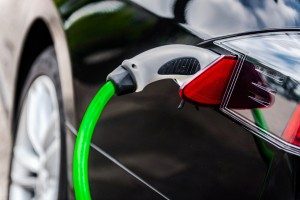A rapid shift towards electric mobility across all transport modes is key to deliver on all Energy Union long-term objectives, namely: supply security, a fully integrated energy market, improved energy efficiency, emission reduction and advancing research and innovation.
Reversely, the roll-out of the Energy Union Strategy will be crucial for deploying electro-mobility’s full potential with a series of important legislative milestones expected in the coming months.
Below we take a look at what 2017 promises, in terms of EU legislative opportunities, for advancing electric mobility in Europe.
Over the past two years overwhelming evidence has piled up exposing the transport sector’s tremendous impact on human health through local air pollution.

According to latest findings by the EEA predominantly transport-induced poor air quality remains the single largest environmental health hazard on the continent, resulting in a lower quality of life due to illnesses and an estimated of 467 000 premature deaths per year.
Moreover, transport currently accounts for 34% and a growing share of planet warmig-CO2 emissions from all sectors not covered by the EU emissions trading system (ETS).
Tackling transport emissions is therefore key to meeting the EU’s overall decarbonisation objectives.
This in turn would require the EU transport sector to undergo an immediate and systematic change.
According to Bellona this should be in the form of a major shift across all transport modes to alternative fuels, in particular sustainable electricity.
A big year for EV charging infrastructure
2017 is set to be a promising year for transitioning towards a clean and sustainable transport system.
More concretely, this year offers hope of accelerating the rollout of an EU-wide interoperable recharging infrastructure, which remains an important pre-condition for the electric vehicle (EV) market to take off.
EU Member States are currently preparing their national plans for the implementation of the Alternative Fuels Infrastructure (AFI) Directive.
The AFI Directive aims to address consumer anxieties with regards to EV range and charging compatibility by mandating the build-up of sufficient number of publically accessible charging points and setting common EU standards for their charging connectors.
Bellona has lead work on this topic within the Platform for Electro-Mobility, which recently published a paper with comprehensive recommendations for the directive’s implementation.
The currently ongoing revision of the Energy Performance in Buildings Directive on the other hand offers an important opportunity to advance the rollout of charging infrastructure in the private domain.
Bellona strongly supports the inclusion of measures in the revised EPBD to mandate the deployment of charge points in buildings.
Normal power charging, from 3.7 to 22 kW, accounts for roughly 90% of the energy charged by an EV, in the form of overnight charging or at the workplace.
As such, it meets the majority of EV charging needs while also offering the greatest potential for EV smart charging – which in turn allows us to reap EVs’ full potential.
Source: 2017: A year of opportunities for advancing electric transport in Europe – Bellona.org



Comments are closed.